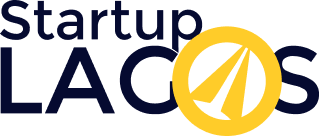In recent years, the creator economy has emerged as a dynamic force reshaping traditional media, advertising, and personal branding. Fueled by advancements in technology and the widespread adoption of social media platforms, this new economic paradigm grants individuals unprecedented power to create, distribute, and monetize their content independently. As the creator economy continues to flourish, its implications for established industries are profound, prompting a critical examination of its impact on media, advertising, and personal branding.
At the heart of the creator economy is the empowered individual—content creators who leverage platforms like YouTube, Instagram, TikTok, and Patreon to build their brands and connect directly with audiences. This paradigm shift has disrupted the traditional media landscape, where a select few gatekeepers controlled content distribution. In contrast, creators now possess the tools to reach global audiences without relying on established media structures. This democratization of content creation allows diverse voices to flourish, challenging the norms set by mainstream media.
The advertising industry has not remained untouched by this transformation. Brands are increasingly recognizing the effectiveness of influencer marketing, where creators serve as authentic ambassadors for products and services. The shift towards influencer-led campaigns marks a departure from traditional advertising strategies, with businesses prioritizing genuine connections over polished narratives. In an era where consumers are more discerning than ever, the ability of creators to foster trust and build community presents a compelling value proposition for brands seeking to engage their audiences more meaningfully.
Furthermore, the rise of the creator economy emphasizes the importance of personal branding. In a landscape saturated with content, creators must differentiate themselves by developing authentic identities that resonate with their followers. This heightened focus on personal branding brings forth new challenges and opportunities. While the potential for creators to monetize their passions is significant, the pressure to constantly produce and innovate can be overwhelming. The success of a creator often hinges on their ability to remain relevant and connected to their audience, necessitating a careful balance between authenticity and commercial interests.
However, as power shifts from traditional institutions to individual creators, questions regarding sustainability and long-term viability also arise. The creator economy is inherently volatile, with trends evolving rapidly and platforms changing algorithms, impacting visibility and income streams. Creators often face an uphill battle to maintain their influence and revenue, leading to concerns about the longevity of their careers. Additionally, issues related to copyright, ownership, and content monetization remain complex, underscoring the need for creators to navigate these challenges strategically.
The implications of the creator economy extend beyond economic factors; they also shape societal narratives. The rise of creators as cultural influencers raises questions about representation, diversity, and cultural appropriation. While the democratization of content creation allows for varied perspectives, it also calls for critical examination of the voices that dominate platforms. Ensuring that marginalized voices receive equitable representation and opportunity within the creator economy is essential for fostering a more inclusive cultural landscape.
As the creator economy continues to evolve, its impact on traditional media, advertising, and personal branding will deepen. The power dynamics shifting in favor of individuals compel established industries to adapt and innovate, while creators must navigate an increasingly competitive landscape. The dialogue around this new economic model must encompass not only the opportunities it presents but also the inherent challenges that come with it.
On a final note, the creator economy holds the potential to empower individuals and redefine the relationship between creators, brands, and audiences. However, this empowerment requires a thoughtful approach to sustainability, inclusivity, and authenticity. As more individuals harness the tools of the creator economy, examining its implications will be crucial for understanding the future of content creation and its place in our society. Ultimately, the question remains: while the rise of the creator economy signifies a shift of power to the people, how effectively can this power be harnessed for equitable and lasting change?
Play audio
Comments
Add your comment
Categories
Startup Raises
262
Feature
83
Fintech
39
Fresh News
696
How To
84
Acquisition
39
Reports
22
Opinion
57
Recent Posts
Meet the Founder Who Turned Down $1.5 Million and Built One of Africa’s Fastest-Growing Companies Two Years in a Row
Most startups pursue large funding rounds to accel...
FG Targets 35 Million Disabled Nigerians in Digital Inclusion Drive
The Nigerian Federal Government has made a promisi...
How Banks and Fintechs Determine Creditworthiness
Banks and fintech companies in Nigeria are adoptin...
Metrospeed and Chevron Partner to Drive Lagos Metro Smart City Development
Metrospeed Property Development Limited has announ...
Beware: Tria Stealer malware is targeting Android users’ WhatsApp and banking apps
There has been an alarming rise in sophisticated c...
Related Post
Each ChatGPT Query Uses 0.34 Watt-Hours of Electricity and a Drop of Water
Sam Altman, CEO of OpenAI, has shed light on the environmental footprint of usin...
The Rise of No-Code Platforms: Democratizing Startup Development
Technology has traditionally been a significant barrier for many aspiring f...
How Does ChatGPT Know So Much? Understanding Where AI Gets Its Knowledge
Have you ever wondered how ChatGPT seems to know almost everything? While it occ...








No comments